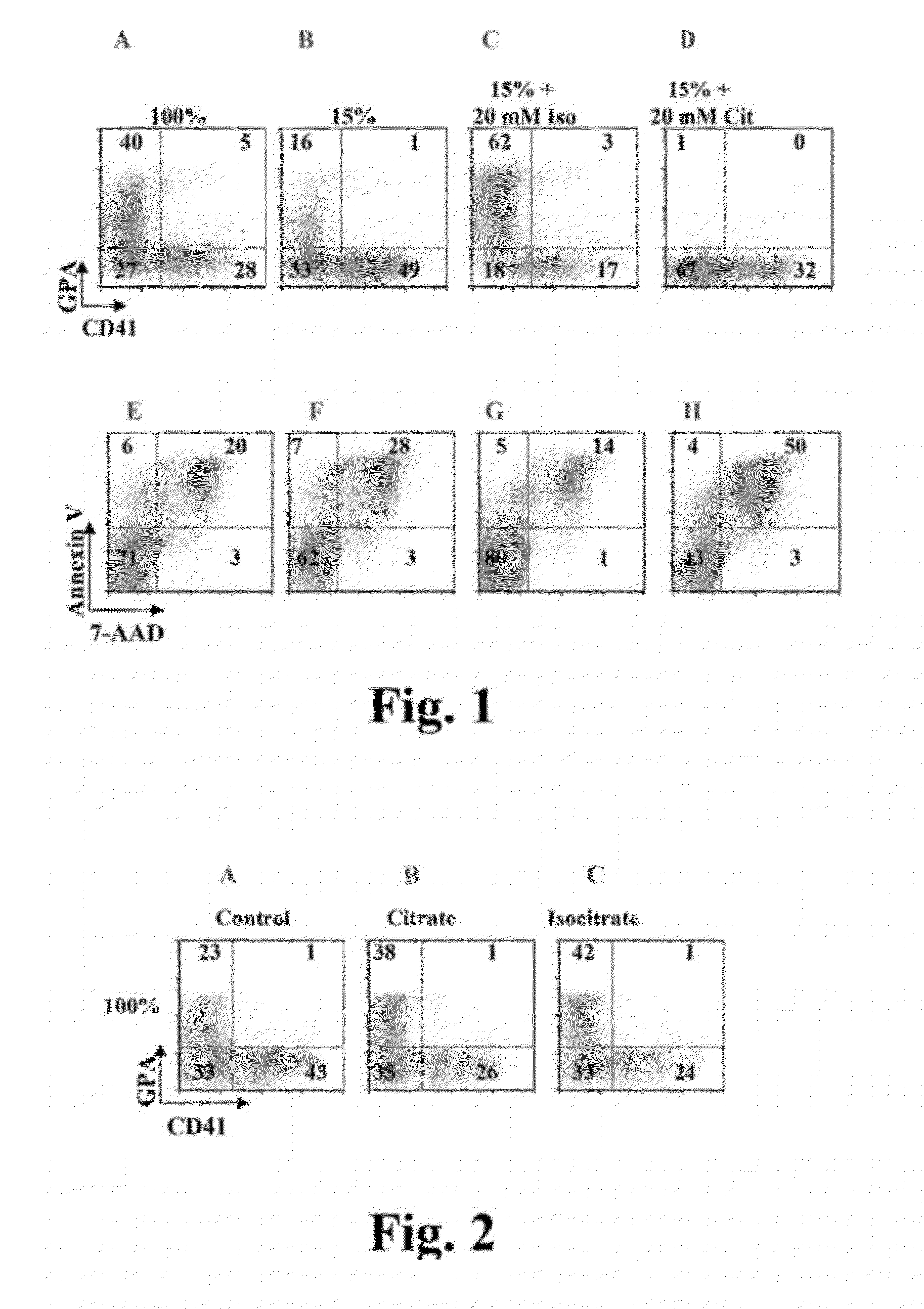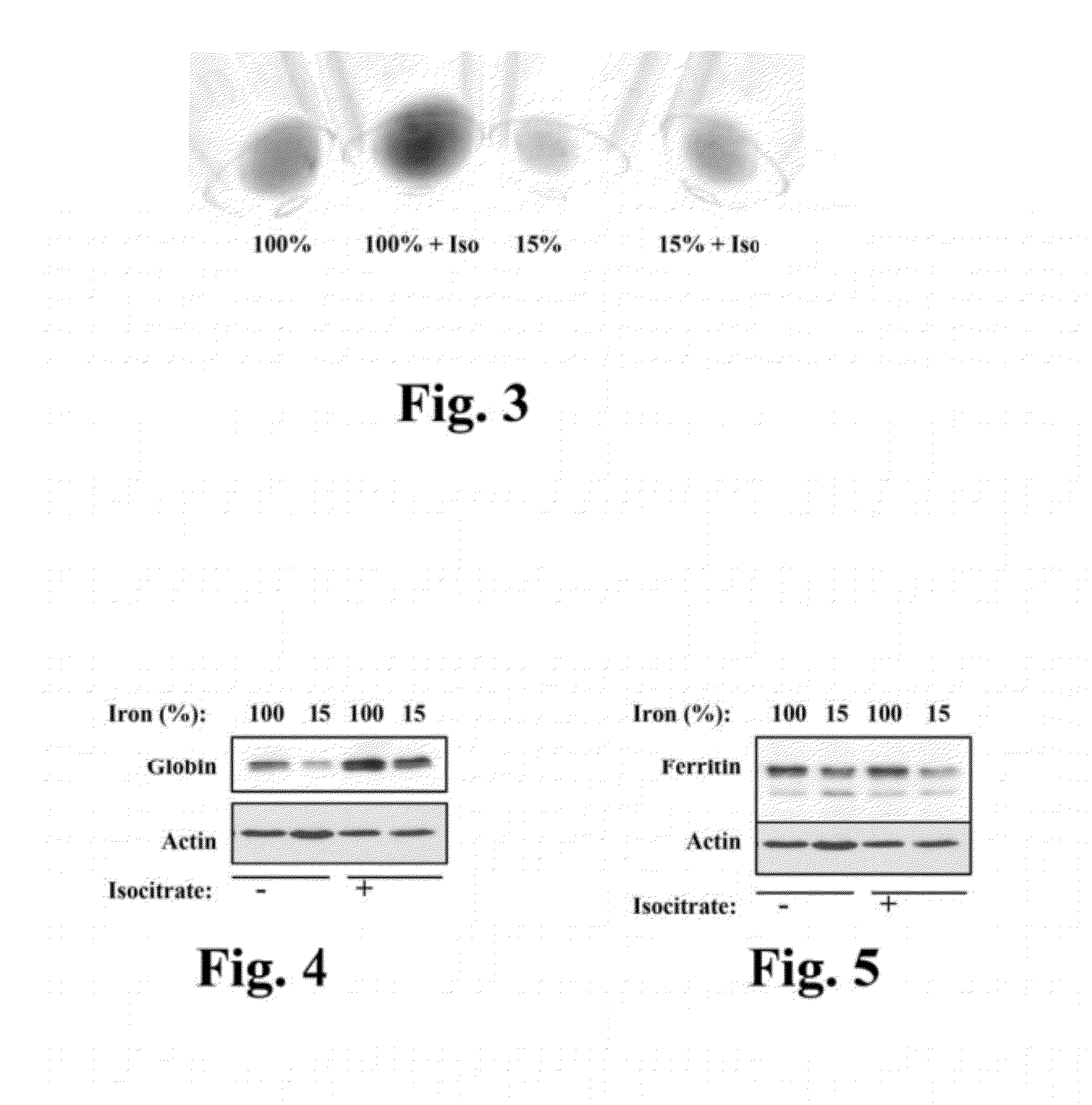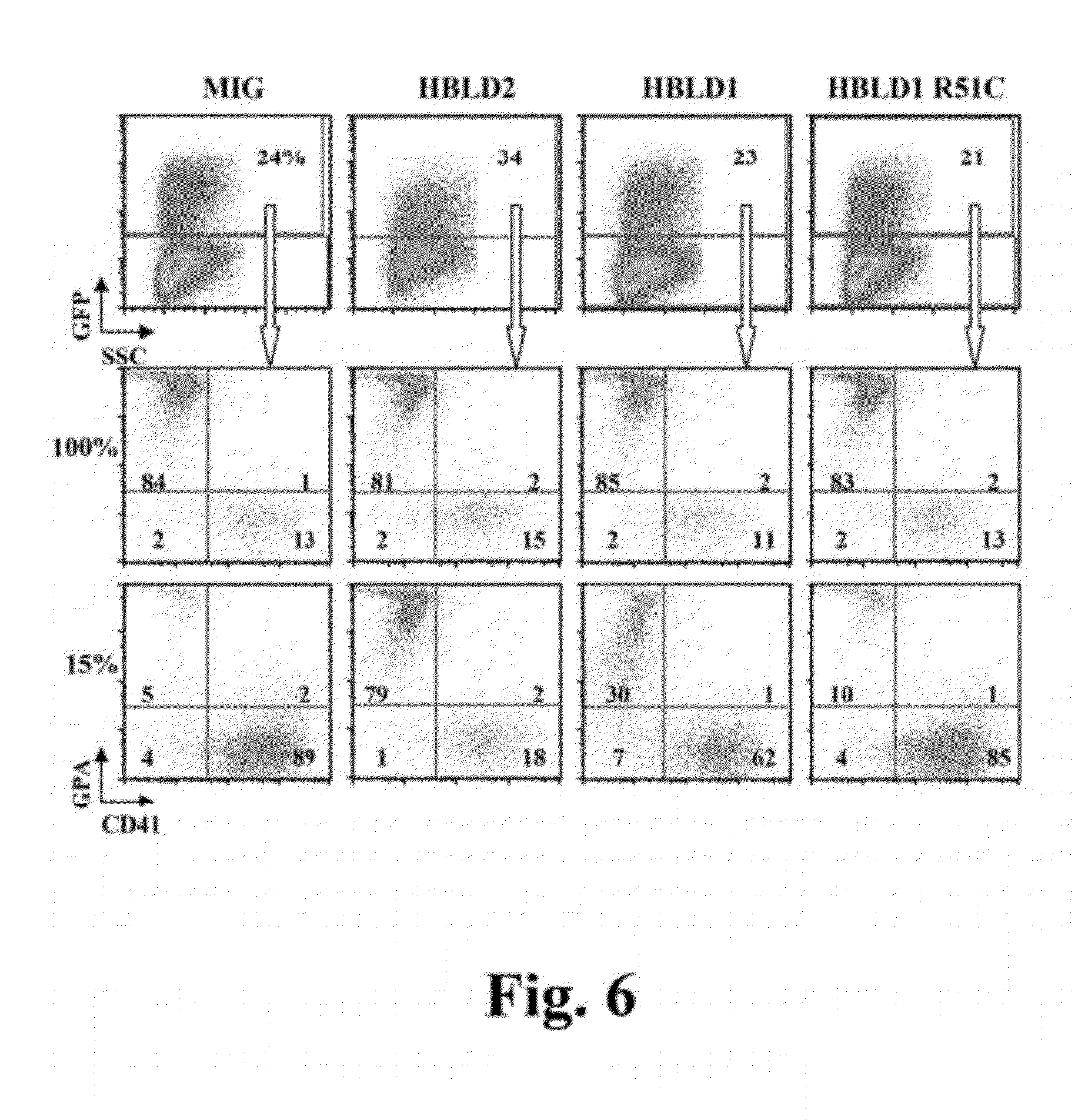Methods and Compounds Regulating the Erythroid Response to Iron Deficiency
a technology of erythroid and iron deficiency, applied in the direction of magnetic resonance measurement, particle separator tubes, peptide/protein ingredients, etc., can solve the problems of not elucidating the mechanism by which iron deficiency suppresses erythropoiesis and enhances megakaryopoiesis
- Summary
- Abstract
- Description
- Claims
- Application Information
AI Technical Summary
Benefits of technology
Problems solved by technology
Method used
Image
Examples
example 1
[0158]For each of the examples described herein, cell cultures were handled similarly. In particular, primary human CD34+ hematopoietic progenitor cells obtained from the National Heart Lung and Blood Core Facility at the Fred Hutchinson Cancer Research Center were cultured in serum free medium (SFM: Iscove's Modified Dulbecco's Medium (IMDM) supplemented with lot tested BSA, insulin, transferrin, selenium, and β-ME) with growth factors and iron added as indicated below. The cells were initially thawed from frozen vials and subjected to 48 hours of culture in pre-stimulation medium which consists of SFM with 100% iron saturated transferrin (80 ng / ml total iron in medium) and the following hematopoietic cytokines: 100 ng / ml SCF (stem cell factor), 100 ng / ml FLT3-L (Flt3-Ligand), 100 ng / ml TPO (thrombopoietin), and 50 ng / ml IL-3. After the 48 hour pre-stimulation phase, the cells were shifted to erythroid medium consisting of SFM with 3 U / ml Epo (erythropoietin) and 25 ng / ml SCF. The ...
example 2
[0162]We found that supplementation of cultures with 20 mM isocitrate also enhanced erythroid differentiation in cultures with adequate levels of iron consisting of 100% transferrin saturation, “iron replete cultures” (FIGS. 2A, C). Interestingly, providing 10 mM citrate in iron replete cultures also enhanced erythroid differentiation, most likely due to functional aconitase enzymes converting the citrate to isocitrate (FIG. 2B). We have performed additional experiments to ensure that the effects observed are not simply on GPA expression but rather reflect global erythroid differentiation.
example 3
[0163]In this experiment, we found that isocitrate enhances the hemoglobinization of human CD34+ cells in erythroid cultures. Briefly, cells were cultured 5 days in erythroid medium under the indicated conditions. Isocitrate was included, where indicated, at 20 mM. Culture samples were centrifuged in microcentrifuge tubes, and cell pellets were photographed against a white background. The sizes of the cell pellets reflect the numbers of cells present in the various samples, and the redness (i.e. darkness) of the pellets indicates the degree of hemoglobinization of the cells.
[0164]FIG. 3 shows a simple assay in which erythroid cultures− / +iron deprivation and − / +20 mM isocitrate were analyzed for hemoglobin production by visual inspection of cell pellets for red pigmentation. As illustrated in FIG. 3, iron deprivation as expected impaired the hemoglobinization of the cells. Notably, treatment of cells with 20 mM isocitrate reversed the block in hemoglobinization caused by iron depriva...
PUM
| Property | Measurement | Unit |
|---|---|---|
| w/w | aaaaa | aaaaa |
| body weight | aaaaa | aaaaa |
| body weight | aaaaa | aaaaa |
Abstract
Description
Claims
Application Information
 Login to View More
Login to View More - R&D
- Intellectual Property
- Life Sciences
- Materials
- Tech Scout
- Unparalleled Data Quality
- Higher Quality Content
- 60% Fewer Hallucinations
Browse by: Latest US Patents, China's latest patents, Technical Efficacy Thesaurus, Application Domain, Technology Topic, Popular Technical Reports.
© 2025 PatSnap. All rights reserved.Legal|Privacy policy|Modern Slavery Act Transparency Statement|Sitemap|About US| Contact US: help@patsnap.com



